Microinverters have emerged as a key component in solar photovoltaic (PV) systems, especially for residential and commercial installations. Unlike traditional string inverters that manage power conversion for multiple solar panels at once, microinverters convert DC to AC at the individual panel level, optimizing energy production and improving system reliability. This article explores some of the leading microinverters in the industry, highlighting their unique features and capabilities.
Introduction to Microinverters
A microinverter is a device used in solar energy systems to convert the direct current (DC) generated by solar panels into alternating current (AC) at the module level. Microinverters offer several advantages over traditional string inverters, including:
- Individual Panel Optimization: Maximizes energy production by enabling each panel to operate independently, ensuring optimal power output even if one panel is shaded or dirty.
- Enhanced Efficiency: Reduces power losses associated with shading, mismatch, and partial system failures.
- Monitoring and Control: Many microinverter systems include real-time monitoring at the panel level, allowing for better system performance tracking and troubleshooting.
- Scalability and Expandability: Microinverter systems are modular, making it easy to expand or upgrade by simply adding more panels.
- Safety and Reliability: Microinverters operate at lower DC voltages, minimizing the risk of electrical hazards and improving overall system reliability.
Below is a list of some of the most popular microinverter manufacturers, their products, and their key features.
1. Enphase Energy
Founded: 2006
Headquarters: Fremont, California, USA
Enphase Energy is a leading microinverter manufacturer, known for its innovative and reliable solutions. The Enphase IQ 7A Microinverter is part of their widely-used IQ series, which offers high efficiency and advanced monitoring capabilities. Enphase microinverters are used in both residential and commercial solar installations.
Key Features:
- Optimized for high-power modules
- Panel-level monitoring via Enphase’s Enlighten software
- Rapid shutdown and enhanced safety features
- Highly reliable, with a design life of over 25 years
Website: Enphase Energy
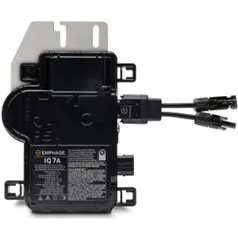
Image Source: Enphase, IQ 7A Microinverter
2. APsystems
Founded: 2010
Headquarters: Seattle, Washington, USA
APsystems is a global leader in microinverter technology, offering solutions for residential and commercial applications. Their DS3 series is designed for single-phase applications, while the QT2 microinverter is suitable for three-phase systems. APsystems is known for providing high power output and advanced monitoring tools.
Key Features:
- Single-phase and three-phase applications
- Integrated monitoring for performance tracking
- Wide power range to support various solar modules
- High efficiency with MPPT at the panel level
Website: APsystems
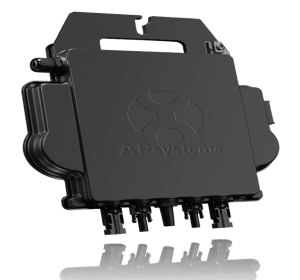
Courtesy: APsystems: DS3 microinverter
3. Chilicon Power
Founded: 2010
Headquarters: Los Angeles, California, USA
Chilicon Power is a specialist in microinverter solutions, offering products like the CP-250E, which is compatible with high-powered PV modules. Chilicon Power focuses on providing advanced features such as grid support and rapid shutdown, making them a strong player in the residential and small commercial solar markets.
Key Features:
- High-performance microinverters compatible with a wide range of PV modules
- Advanced monitoring and communication features
- Designed for grid stability and rapid shutdown
Website: Chilicon Power
![]()
Courtesy: Chilicon Power: Microinverter CP-250E
4. SMA Solar Technology AG (Sunny Boy)
Founded: 1981
Headquarters: Niestetal, Germany
SMA Solar Technology, a well-established player in the solar industry, also offers microinverters through its Sunny Boy series. The Sunny Boy 240-US Microinverter is designed for residential installations, providing reliable performance and flexibility for small to medium-sized systems.
Key Features:
- High reliability with long service life
- Easy integration with Sunny Portal for real-time monitoring
- Simple installation process with modular design
Website: SMA Solar Technology
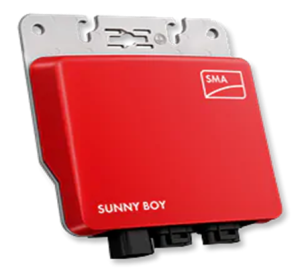
Image Source: Sunny Boy 240-US-Microinverter
5. Hoymiles
Founded: 2012
Headquarters: Hangzhou, China
Hoymiles is a fast-growing microinverter manufacturer known for its efficient and affordable solutions. Their HMS-350/400/450/500-NA series is tailored for the North American market, while the HM-1200NT and HM-1500NT models support up to four solar panels, maximizing energy production for residential and commercial installations.
Key Features:
- Supports single and multi-panel configurations
- High conversion efficiency and module-level MPPT
- Flexible design for residential and commercial installations
Website: Hoymiles
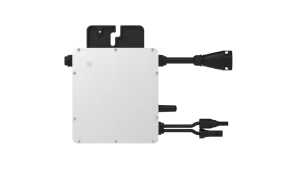
Image courtesy Hoymiles: HMS-350/400/450/500-NA Series
6. Deye Inverter Technology Co., Ltd.
Founded: 2007
Headquarters: Ningbo, China
Deye offers a range of microinverters with power ratings from 300W to 2000W, suitable for different voltage outputs. Deye’s microinverters, such as the SUN-M60/80/100G3-EU-Q0, are designed for residential and commercial applications, offering robust performance and flexibility.
Key Features:
- Wide power range to meet various voltage outputs
- Efficient DC to AC conversion with minimal energy losses
- Advanced safety features and monitoring capabilities
Website: Deye
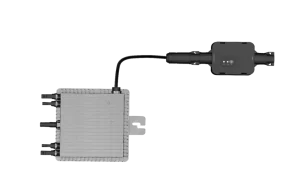
Image Source: Deye, SUN-M60/80/100G3-EU-Q0|600-1000W
7. Siemens AG
Founded: 1847
Headquarters: Munich, Germany
Siemens, a global leader in technology and energy solutions, also offers microinverters for solar installations. Their SMIINT250R60xx series is designed for residential and small commercial applications, offering high efficiency and safety.
Key Features:
- High-efficiency power conversion
- Reliable performance with long lifespan
- Integrated monitoring and control options
Website: Siemens
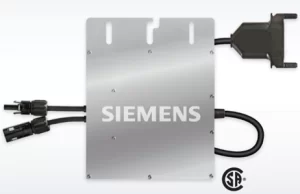
Image Source, Siemens: SMIINT250R60xx.
8. Huayu New Energy Technologies Co., Ltd.
Founded: 2012
Headquarters: Guangzhou, China
Huayu specializes in microinverters for a broad range of solar markets. They offer models such as the HY-300-Plus for single-panel setups, and the HY-1000W for connecting up to four panels, enabling efficient solar power production even under challenging conditions.
Key Features:
- Supports single and multi-panel configurations
- Efficient MPPT for maximizing power output
- Cost-effective solutions for residential and commercial use
Website: Huayu New Energy
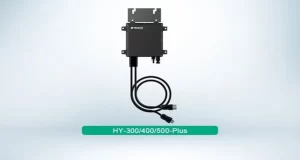
Image Source: Huayu New Energy Technologies Co., Ltd: HY-300-Plus
9. SPARQ
Founded: 2011
Headquarters: Canada
SPARQ Systems produces innovative microinverters, with their Q2000 quad microinverter being one of the most powerful options available, supporting up to four panels at once. SPARQ is known for its reliable, high-efficiency solutions.
Key Features:
- Quad microinverter design for increased power output
- Industry-leading power rating
- Advanced monitoring and energy management features
Website: SPARQ
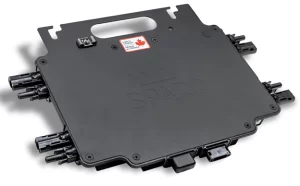
Image Source, SPARQ: QUAD Q2000
10. Northern Electric Power Technology Inc (NEP)
Founded: 2010
Headquarters: China
NEP has been producing microinverters since 2011, offering both Rule 21 compatible and non-Rule 21 compliant models for the U.S. market. Their microinverters are known for robust performance and compliance with industry standards.
Key Features:
- Supports residential and commercial installations
- Rule 21 compatibility for the U.S. market
- Reliable and efficient energy conversion
Website: NEP
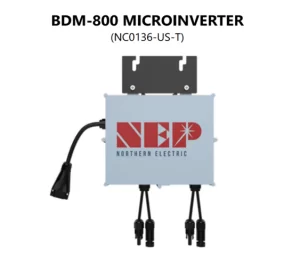
Summary
Microinverters offer significant advantages in terms of energy optimization, system monitoring, and flexibility. Leading manufacturers like Enphase, APsystems, and Hoymiles provide solutions that cater to various system sizes and complexities, making microinverters ideal for residential, commercial, and even industrial applications. While they may come with higher upfront costs compared to string inverters, the long-term benefits of improved energy efficiency, safety, and reliability make them a worthwhile investment.
